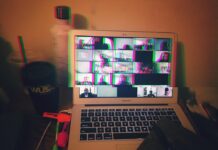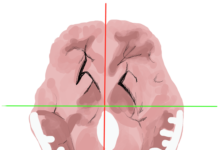Students packed into St. Paul’s GreenHouse — University of Waterloo’s social innovation hub — to hear Prof. Larry Smith give a talk titled, “So You Want to Change the World,” Jan. 28.
The talk was part of a larger project to improve experiential learning at UW, which Smith has been advocating alongside Howard Armitage, founder of the Conrad Business, Entrepreneurship and Technology Centre.
This was the GreenHouse’s first event open to the public since they started up in the summer of 2013. According to Tania Dal Matto, its director, their mission is to “help UW students pursue innovative, enterprising solutions to complex social and environmental problems.”
The hub offers students an environment where they can learn, develop, and collaborate on ideas to enact social action. Smith’s main argument: if you want to change the world, you must do it and do it fast.
“For everything we might be tempted to celebrate, there’s always this killer problem when we do,” said Smith. “To celebrate India being polio-free in 2014, you should wonder: why did it take so long? The polio vaccine dates from me being a child.”
Charities often get bogged down by self-satisfaction, and become complacent and uncreative, he argued. The question of doing “better” as a measurement for success is not sufficient.
“If we celebrate too much, you know what happens,” he said. “We get a nice comfortable feeling of self-righteous congratulations. At the same time, you should have the same simultaneous thought in your head: how long has it taken? It should not have taken this long.”
During his talk, Smith referenced the newsletter from the Bill and Melinda Gates Foundation as stating that with the right policies in place, infant mortality in every country in the world will be equal to what it was in the United States and United Kingdom in 1980. “That should make your blood run cold,” he said.
“How much do we celebrate and how much do we lament? Every single charity, big and small, public, private, and quasi-public, always say to themselves, how can we do it better?” said Smith. “That squishy English word ‘better.’ It means nothing. If your standard is to do something better, who can prove you false?”
Social entrepreneurship, like its commercial counterpart, must satisfy its stakeholders, but there is an area of contention in that the money borrowed may not lead to success right away. Projects often fail, but this is an advantage according to Smith, “you now know what doesn’t work.”
“To be a social entrepreneur, if you’re going to do it fast, it means you ask the awkward questions, and you think of creative answers,” he said. “Every time we think about a social action problem, we start getting into dangerous territory. We get near something powerful that might not like our questions.”
Continuous effort and bravery are necessary, but the support on campus for social entrepreneurial initiatives has been expanding to help students who want to make an impact.
“The movement of social entrepreneurship is present in many forms on campus,” said Dal Matto. “It is emerging in academic courses offered at the university; it is also evident in UW student clubs that are oriented around finding solutions to social/environmental problems. It is evident in incubators such as GreenHouse; the efforts of students to lead social or environmental change on campus and in our UW alumni who go out and start new ventures and then come back to campus to share their stories and inspire/mentor our students.”
The project overall has been met with great support from UW’s administration and several key groups. Smith was very satisfied with its progress so far.
“We’ve gotten an amazing amount of stuff done. What’s encouraging is how many people, in the different parts of the university, have all just come together,” said Smith. “Howard and I have met with eager support. From student services, from the deans, from WatPD, from CECA; they all see the value of focusing on entrepreneurship.”
This does not mean the project will be slowing down in any way. The GreenHouse program will be branching into co-op opportunities for students to make their ideas grow into solutions faster.
“You’re thinking, I could make the world a little bit better. I’m not satisfied with a little bit better. You see, I want the world changed in my lifetime,” said Smith.
To read more about the ongoing project, students can log in to beastar.uwaterloo.ca with their UW Learn credentials.




























